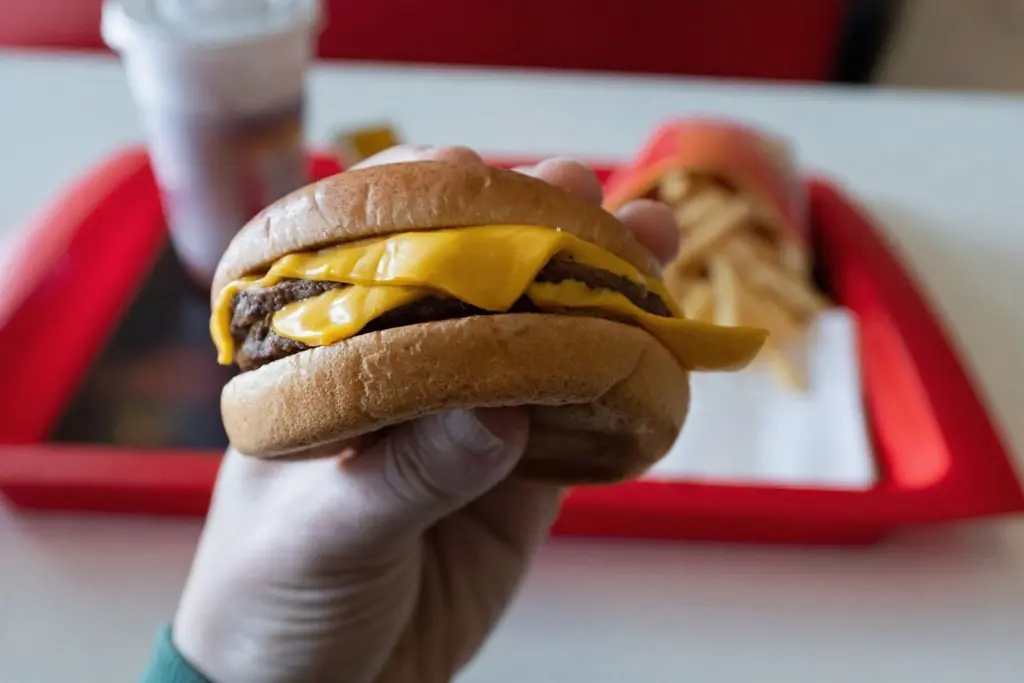
- 5 min read

The Obesity Paradox: Why Your Body Fat Matters More Than Your Scale Weight
New research reveals why BMI misleads men about health risks. Learn how obesity affects male fertility, muscle mass, and cancer risk, plus what actually works.
Your doctor tells you to lose weight. The scale says you’re 30 pounds over ideal. But new research suggests we’ve been measuring obesity wrong this entire time.
Cancer deaths linked to obesity have tripled in the United States over the past two decades, according to data presented at ENDO 2025. CDC analysis of 33,572 deaths found age-adjusted mortality rates increased from 3.73 to 13.52 per million between 1999 and 2020. Men face particular risks here, with 13 types of cancer directly linked to excess weight.
And the problem keeps accelerating.
The Metabolically Healthy Myth
You might know someone who’s technically obese but runs marathons. Or perhaps you’re that guy yourself. Scientists call this “metabolically healthy obesity” (MHO), and it affects about 12% of obese individuals across European cohorts. Sounds reassuring, right?
 Not so fast.
Not so fast.
UK Biobank research tracking 381,363 participants found that people with MHO had 60% higher rates of heart failure and 20% higher rates of respiratory disease. So much for being the “healthy” overweight guy. The research gets worse: men are more prone to transitions from MHO to metabolically unhealthy obesity, and this shift often happens without warning.
Think of it like driving with a check engine light that’s been disconnected. Everything seems fine until the engine seizes.
Ultra-Processed Foods: The Silent Saboteur

Here’s where things get interesting for men specifically. Recent research from Cell Metabolism found that people gain more weight on an ultra-processed diet compared to a minimally processed diet, even when eating the same number of calories.
But wait, there’s more bad news for guys.
The study revealed that ultra-processed foods introduce higher levels of pollutants known to affect sperm quality. Copenhagen researchers were shocked by the results. These foods harmed reproductive and metabolic health even when not eaten in excess.
Translation: That frozen pizza isn’t just adding to your waistline. It’s potentially affecting your fertility and hormone balance too.
The Male Fertility Connection Nobody Talks About
Speaking of fertility, here’s something your family doctor probably hasn’t mentioned. Obesity, diabetes, and metabolic syndrome negatively impact various parameters of male fertility, from semen quality to sperm DNA integrity. A systematic review examining 112 studies between 2013 and 2023 confirmed what urologists have suspected for years.
Male obesity correlates negatively with live births through both natural conception and assisted reproductive technologies. Put simply: extra weight reduces your chances of becoming a father, whether you’re trying naturally or through IVF.
The mechanisms are complex. Excess fat tissue acts like an endocrine organ, pumping out hormones that interfere with testosterone production. Visceral fat around your organs is particularly problematic. You can estimate this risk yourself: if your waist circumference exceeds 40 inches, you’re likely carrying dangerous amounts of visceral fat.
GLP-1 Drugs: The Promise and the Problem
You’ve probably heard about Ozempic, Wegovy, or Mounjaro. These GLP-1 receptor agonists have taken the weight loss world by storm. About 11.8% of U.S. adults reported using GLP-1 agonists in 2025, with usage highest among those aged 50-64.
The results look impressive on paper. Study participants lost an average of 22.9 pounds on the highest dose of orforglipron after 72 weeks. But there’s a catch that should concern every man reading this.
Research shows that 40% of weight loss from semaglutide injections comes from lean body mass, with about a third of that being muscle. For middle-aged men already dealing with age-related muscle loss, this presents a serious problem. GLP-1 drugs significantly reduce body weight but show no clear evidence of improving cardiorespiratory fitness, according to University of Virginia researchers.
Think about that. You lose weight but not the kind that actually improves your cardiovascular health. And you’re sacrificing muscle mass in the process.
Former FDA Commissioner Dr. David Kessler, who’s used these drugs himself, describes the experience bluntly: The feeling of fullness can be unpleasant, like being “at the edge of nausea,” similar to overeating at Thanksgiving dinner. Side effects are common too. About half of GLP-1 users report nausea, and one-third experience diarrhea.
What Actually Works (Without the Downsides)
So if scales lie, “healthy” obesity isn’t healthy, and miracle drugs eat your muscles, what’s left?

Start with sleep. Poor sleep is linked to obesity and diabetes risk, with eating at night leading to more energy being stored as fat. Night shift workers face particular challenges here. Your body’s most capable of processing nutrients during daylight hours. Fighting this biological reality is like swimming upstream.
Exercise remains non-negotiable, but the type matters. Physical exercise generally improves male fertility markers, though type and intensity play crucial roles. Resistance training becomes especially critical if you’re considering GLP-1 drugs. You need to actively fight that muscle loss.
Diet quality trumps calorie counting. Research shows that increasing amounts of ultra-processed foods in our environment have helped drive the obesity rise. Focus on whole foods. Not because they’re trendy, but because your hormones and metabolism actually function properly when you eat real food.
The Regional Reality Check
Geography matters more than you might think. The Midwest has the highest rate of obesity-related cancer deaths, while the Northeast has the lowest. If you’re living in certain states, your environment actively works against you.
Canadian men face similar challenges, particularly during long winters when activity drops and comfort food consumption rises. The key is recognizing these environmental factors and planning accordingly.
Your Next Move
First, get beyond BMI. Request a body composition scan that measures visceral fat and muscle mass. These provide actual data about your health risks, not just a weight-to-height ratio invented in the 1830s.
Second, if you’re considering GLP-1 drugs, understand the trade-offs. Many online services offer quick prescriptions, but going through a trusted healthcare provider is safer. Demand a comprehensive approach that includes strength training and protein optimization to preserve muscle.
Third, address the ultra-processed elephant in the room. Researchers note that completely eliminating ultra-processed foods isn’t practical since they make up half the food supply. But you can dramatically reduce intake. Start with one meal. Make breakfast from whole ingredients. Build from there.
Finally, recognize that metabolic health deteriorates with age. Thirty-year follow-up data from 90,257 participants confirmed frequent transitions from metabolically healthy to unhealthy status, with metabolic health declining across the entire BMI range. You can’t coast on past fitness. Active management is required.
The obesity crisis isn’t just about willpower or calories. It’s about understanding how modern food environments, sedentary lifestyles, and misguided medical metrics have created a perfect storm of metabolic dysfunction. For men, the stakes include not just longevity but fertility, muscle mass, and quality of life.
The good news? Once you understand what you’re actually fighting, you can develop strategies that work. Not quick fixes or miracle drugs, but sustainable approaches based on how male bodies actually function.
Your scale weight matters less than where that weight sits, what it’s made of, and how it affects your hormones. Focus there, and the numbers will follow.
Was this article helpful? Let us know!